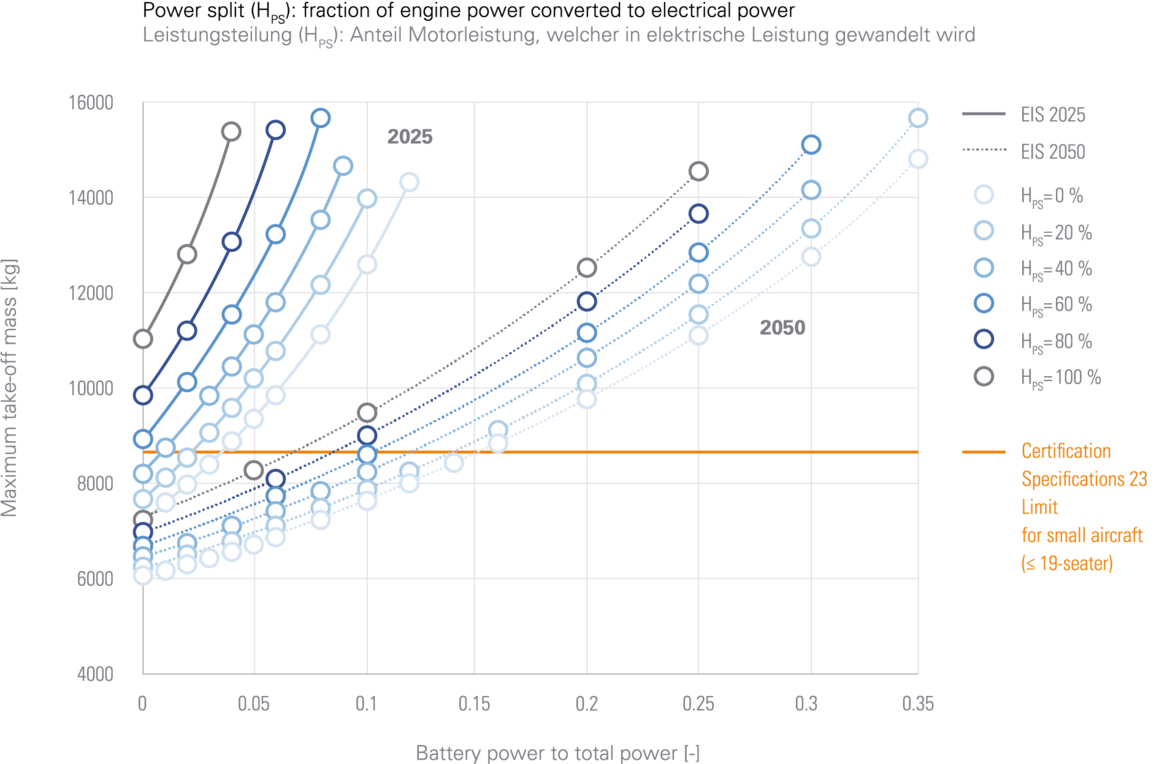Most aircraft electrification studies have limited their explorations to partial aspects, implying that a holistic analysis of the potential of electric flight has not yet been tackled. This encapsulated the core contribution of the GNOSIS project; following a synthesis of technologies enabled by aircraft systems and propulsion electrification, a comprehensive evaluation was carried out at both aircraft and air transport system level. In addition to the technical assessment on vehicle, airport, airspace, material or energy provision, the evaluation also included legal aspects and a life-cycle analysis.
To properly set the scene for the subsequent project tasks, an initial design-space exploration on the electrification of various commuter aircraft powertrain configurations was performed by Bauhaus Luftfahrt. The focus was on powertrain setups combining engines with batteries or fuel cells, and combustion engine power conversion to electric power via a generator.
The studies, following a calibration of the reference aircraft B1900D, showed that hybridisation options in conjunction with piston engines are less favourable than with turboshaft engines due to their power-to-weight ratio, cost considerations set aside. Furthermore, the conceptual design analyses showed that conservative battery assumptions and the electrification mass itself reduce the viable configuration options drastically. This and the accompanying snowball effects for structural masses required synergetic technologies as load alleviation or propulsive efficiency increase by synergistic propulsor placement to be mandatory.
For both years of entry into service (EIS) the turboshaft engine is paired with varying fractions of battery power. Additionally, the conversion of combustion engine power to electric power via a generator is shown (array of curves).



